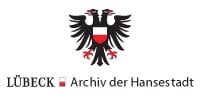Source Information

About Lübeck, Germany, Census, 1862
This collection contains the 1862 census for the Free City of Lubeck. Census records are very rare for Germany as the country’s nationwide censuses were to be conducted on a state-wide level and this was only required nationally after 1871. Additionally, all original census records under Eastern Germany were destroyed. This is the first time this particular collection has been digitized and made available online.
To achieve free city (also free imperial city) status, the Emperor had to publicly declare his direct rule over the city. In 1226 Frederick II, Holy Roman Emperor, awarded Lubeck this free city status. Due to its location, the city became the capital of the Hanseatic League, which was a trading monopoly comprised of cities and guilds along the northern coast of Europe from the 13th to 17th centuries. From 1817 to 1867 Lubeck became one of the 39 sovereign states in the German Confederation, created to serve as successor to the Holy Roman Empire of the German Nation.
Had your ancestor been a citizen in Lubeck under the German Confederation, they would have lived in a city with a semi-autonomous government and a prosperous port surrounded by bays, fjords, and cliff lines. Perhaps their home would have been structured of brick whose Gothic architectural tradition made Lubeck a world heritage site. The city is also known for its marzipan industry and Christmas market handicrafts in whose tradition your ancestor could have participated. Today Lubeck is one of the largest cities in the state of Schleswig-Holstein and the largest German port on the Baltic Sea.
Information in this index:
- Given name
- Surname
- Street address
- Head of household
- Occupation/status
- Marital status
- Members of the household and their relationship to the head
- Religion